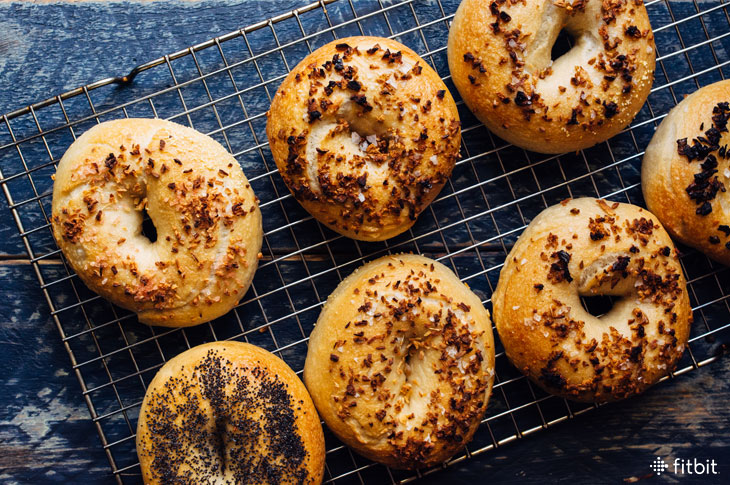
In an effort to go gluten free, many people are cutting bread, pasta, and pastries from their diets with similar gusto reminiscent of the low-fat craze in the 80s and 90s. But most nutrition experts still agree that whole grains are an essential part of a healthy, balanced diet. So why has a protein found naturally in wheat, barley, and rye become such a bad word? And who really needs to give it the boot?
Only a Small Percentage of the Population Needs to Go Gluten Free
First, it’s worth noting: There are genuine medical reasons someone might need to avoid gluten. For people with celiac disease, an autoimmune condition that causes serious damage to the small intestine, gluten-free isn’t a choice—even a crumb can be dangerous. But despite increased awareness, the reality is only 1 percent of the population actually suffers from celiac disease. (If you think you might have celiac, discuss testing options with your doctor.) It’s also possible to have a wheat allergy, which is not the same as celiac disease. The allergy is more common in kids, hitting around 1 percent of children under the age of 3, but most outgrow it by age 6½, and are fine as adults.
Gluten Sensitivity Is Real, but Less Common than You Think
If you’re among those who experience symptoms, but don’t test positive for celiac disease or a wheat allergy (roughly 6 percent of the population), gluten sensitivity may be the problem. Luckily, gluten won’t damage your gut, but you still likely suffer from similar unpleasant side effects. Diagnosis can be difficult, but generally follows a three-step process: testing negative for celiac disease, symptoms improving after gluten is eliminated, and symptoms returning once gluten is added back in. Recent research has also brought attention to fructans, a type of fiber also found in wheat, as well as onions, garlic, and artichokes. If you’re sensitive to those foods, you might discover that fructans are really at fault, not gluten, making your diet much less restrictive while still improving your symptoms.
Some people believe there’s been an increase in gluten sensitivity because manufacturers are adding more gluten to speed up commercial bread making. However, a recent study in the journal Digestion found 86 percent of people who believed they were sensitive to gluten actually were not. So if only 7 percent of people need to remove gluten for real medical reasons, why has a gluten-free diet become the standard “prescription” for everything from weight loss to depression?
Avoiding Gluten Could Help You Lose Weight …
Of course, if you’re avoiding cookies, white bread, and beer, you may lose a few pounds. By eating less of these foods, you’re essentially cutting carbs, which results in your body letting go of some retained water, too. Initially, you’ll feel less bloated and more toned. Athletes’ muscles will be more clearly defined, as the skin appears less puffy. If ditching an overload of bread means you’re eating a wider variety of whole grains, fresh fruits and vegetables, that’s the best case scenario. But after a few days, the reality sets in—going totally gluten free is a highly restrictive and expensive diet that’s hard work to maintain. And in many cases, a gluten-free diet can be less healthy.
… But Gluten Free Isn’t Healthier
A cookie doesn’t suddenly become a health food when the gluten is removed. Gluten-free cookies, cakes, breads, and crackers typically rely on highly refined, processed ingredients to create the same texture and feel. Rice flour and potato and tapioca starch are common substitutes, but they lack fiber (a nutrient Americans desperately need), have a higher glycemic index (causing a sugar rush), and are missing essential nutrients like iron and folic acid, which many wheat products are enriched with. Gluten-free products also tend to be higher in fat and sugar, to improve the flavor: compare a gluten-free chocolate wafer (2.3 g of fat) to a regular chocolate wafer (0.8 g of fat)—that’s almost three times as much fat, and small differences like this can add up quickly!
When a gluten-free diet isn’t followed with care, you could be missing out on gut-loving fiber and other essential vitamins and nutrients—sending you down a path towards deficiencies, weight gain, and constipation. Not sounding all that healthy anymore, is it?
If you suspect gluten may be affecting you, it’s important to get properly tested by a medical doctor, and follow a structured elimination diet developed by a registered dietitian. Otherwise, be selective when it comes to carbs. Opt for old-school, slow-risen breads made without the extra added gluten, and don’t go crazy on the portions either—devouring an entire family-sized pizza can cause anyone to double over with belly ache! You may discover you feel better and can still eat the foods you love.
This information is for educational purposes only and is not intended as a substitute for medical diagnosis or treatment. You should not use this information to diagnose or treat a health problem or condition. Always check with your doctor before changing your diet, altering your sleep habits, taking supplements, or starting a new fitness routine.

Thank you for a well-written article about gluten. It’s time for some common sense!
I have Celiac disease (diagnosed) and need a weight loss diet, where can I find one¿
I am in the same boat. A diagnosed Celiac I’ve discovered those “gluten free” cookies became my enemy! I gained weight which now I can’t get off. My husband and I have gone to fresh vegetables daily or frozen if not in season. They’ve discovered I can’t do preservatives, nitrates or xanthum gum.
So what has happened is my Drs have discovered I’m suffering from malabsorption. I have various other illnesses to accommodate the Celiac.
There’s got to be a diet out there for us to use with our walking, hiking and biking to make a difference.